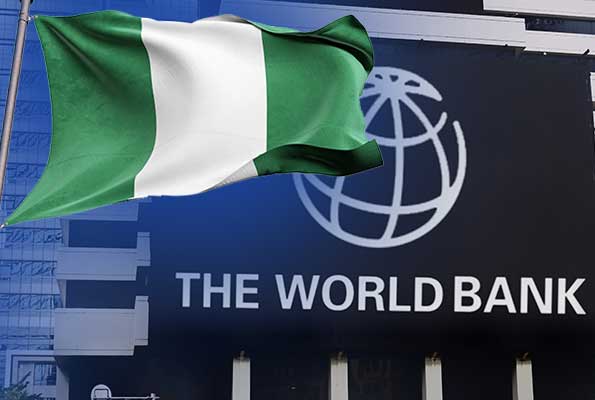Nigeria intends to apply for USD 1.5 billion in World Bank concessional loans as the administration works to liberalize and modernize the economy of the nation.
Nigeria’s finance minister, Wale Edun, stated at the World Bank Group and International Monetary Fund’s Annual Meetings in Marrakech that the government has “concluded plans” to request funds from the institution.
Wale Edun said Nigeria would apply for the loans through the International Development Association, a development finance organization with headquarters in Washington., that provides grants and concessional loans to developing nations. Additionally, he stated that “effectively, the interest rate will be zero” for these loans.
The decision was made at a time when the Nigerian economy is having trouble adjusting to the reforms President Bola Tinubu, who took office in May 2023, started.
Since then, Bola Tinubu has worked to liberalize the Nigerian economy by removing some of the limitations on the foreign exchange markets that had kept the value of the naira artificially high and by eliminating gasoline subsidies that, in his opinion, had grown to be an unmanageable burden on the country’s resources.
While the World Bank and the majority of international financial institutions have supported what they perceive as necessary changes, they have also significantly exacerbated political and economic unrest in Nigeria.
Nigeria’s stock market has been delisted from important indices, the naira has fallen to historic lows, and labour unions have threatened indefinite strike action.
Due to ongoing currency limitations, international businesses still have billions of dollars “stuck” in Nigeria despite Bola Tinubu’s initial reforms, which discourage additional investment.
South Africa Threat Looms
Meanwhile, the International Monetary Fund (IMF), in its latest outlook for Africa, sees the possibility of South Africa toppling Nigeria as the region’s biggest economy.
According to the IMF World Economic Outlook, South Africa, the most industrialised country on the African continent, is seen striving towards achieving USD 401 billion GDP mark by 2024.
IMF, however, envisioned that based on current prices, Nigeria and Egypt had GDPs of USD 395 billion and USD 358 billion respectively. In fact, South Africa is billed to top the chart for a year before trailing Nigeria again. The global monetary agency even sees South Africa further plummeting to third place behind Egypt in 2026, if the nation doesn’t consolidate upon its GDP lead over Nigeria.
Nigerian President Bola Tinubu’s administration has affected the removal of fuel subsidies, and the foreign exchange system, apart from addressing dollar shortages and boosting tax revenue.
While these measures are causing pain in Nigeria, analysts believe these decisions will have increasingly paid dividends in the coming days.
The IMF sees Nigeria’s GDP expanding by 3.1% in 2024, compared with 2.9% in 2023.
“The reforms should lead to stronger and more inclusive growth,” Daniel Leigh, division chief in the IMF’s research department, told the media recently.
“We believe the IMF’s projections reflect where it believes meaningful reforms will take place. South Africa’s transient emergence as Africa’s largest economy in 2024 is mainly due to the shrinking of Nigeria and Egypt’s GDP in dollar terms, following sharp currency devaluations,” stated a Bloomberg report.
“However, the long-term trajectory shows Nigeria and Egypt regaining their top spots, with the former taking a strong lead. For Nigeria to realise the GDP expansion projected by the IMF, we think oil output must be restored to its potential; insecurity needs to be tackled; and the bottlenecks in the power sector addressed,” it added further.
Systemic Issues
Esaie Diei, CEO of the Lagos-based fintech advice company Afrinovatech, tells African Business that he is not certain how useful the USD 1.5 billion loan will be in resolving the systemic problems afflicting Nigeria’s economy.
According to the World Bank, Nigeria continues to have high inflation and low productivity, which is the core issue, Esaie Diei said.
“Would borrowing an additional USD 1.5 billion put the nation on the path to prosperity or help it out of this difficult situation?” the official stated further.
Similar sentiments are shared by Teniola Tayo, economic intelligence head at the Office for Strategic Preparedness and Resilience (OSPRE) in Abuja. She pointed out that Nigeria’s economic problems are ingrained, and although a loan from the World Bank could assist in alleviating short-term volatility, she was dubious about its long-term effectiveness.
“Nigeria has been in a tough fiscal position for a while now, due to a confluence of issues, including our persistent struggle to diversify our exports away from oil and gas, as well as external shocks like COVID-19 and the Russia-Ukraine war,” Teniola Tayo stated further.
“The crippling costs of the fuel subsidies and the challenging business environment brought on by high inflation and the FX crisis made the situation worse,” she added further.
“A loan could offer some short-term assistance, but it might not be sufficient. It is vital to eliminate any needless policies that are now preventing foreign exchange from entering the nation. Of course, increasing exports is the most crucial step in improving our trade balance. There are no easy solutions to our currency’s problems,” Tayo concluded.
The Nigerian Stock Exchange All Share Index has strengthened marginally in trading in October, suggesting that markets have responded favourably to the announcement of a prospective loan.
There are also concerns about whether the funds will ultimately have a significant influence on the Nigerian government’s initiatives to improve the struggling national economy.



